Prize Lecture winners 2018
26 October 2017
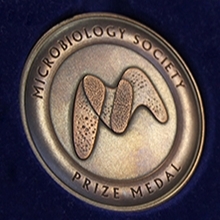
The Microbiology Society is pleased to announce the winners of our 2018 Prizes, which will be awarded at our Annual Conference, to be held from 10–13 April at the International Conference Centre (ICC) in Birmingham, UK. The winners will also present their lectures at the Annual Conference.
The Microbiology Society’s Prizes recognise excellence and are awarded to those making significant contributions in the field of microbiology, based on nominations received from the membership.
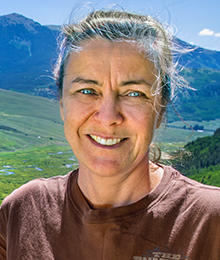
Prize Medal
The 2018 Microbiology Society Prize Medal will be awarded to Professor Jill Banfield from the University of California, Berkeley. Jill investigates the diverse range of microbial communities living in different environments and she has made huge contributions to the disciplines of microbiology, earth sciences and phylogeny. For example, her identification of a new phylum of archaea has led to a new view of the tree of life, and her research group was the first to detect CRISPR sequences in natural microbial populations. Her other work has made significant impacts on the fields of remediation and nanotechnology. Professor Banfield has a vast publication record of well over 300 papers and has held Professorships at the University of Wisconsin, Madison and the University of Tokyo.
Jill said of her award: “I’m astonished to have been selected for the Microbiology Society 2018 Prize Medal award. Thank you for this huge honour that reflects the contributions of many talented scientists who have worked with me over the years, from our first foray into acid mine drainage through many ecosystems and metabolisms and evolutionary stories to our current work on soil and the ecologically and biotechnological important organisms that reside there.”
The Prize Medal is awarded to an outstanding microbiologist who is a global leader in their field and whose work has had a far-reaching impact beyond the discipline of microbiology. The recipient is awarded their engraved medal and £1,000 at the Society’s Annual Conference.
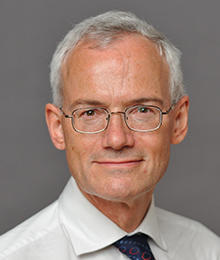
Marjory Stephenson Prize
The 2018 Marjory Stephenson Prize will be awarded to Professor Geoffrey L. Smith FRS from the University of Cambridge. Geoffrey studies poxviruses, including the vaccinia virus. His recent research has focused on the way that the vaccinia virus interacts with human cells and modulates the immune system. These findings have been important to his work on improving vaccinia virus as a vaccine vector.
In 2003, Professor Smith was made a Fellow of the Royal Society and he is Chair of the WHO Advisory Committee for Variola Virus and a Wellcome Trust Principal Research Fellow. From 2003–2007 he was Editor-in-Chief of the Society’s Journal of General Virology.
He said of his award: “The award of the Marjory Stephenson Prize is wonderful for all members of our research team (past and present) whose dedication, hard work and admirable achievements are the foundation for this award. So warm thanks and congratulations to you all. Warm thanks too to the Microbiology Society for the award and to the University of Oxford, Imperial College London and the University of Cambridge (twice) for hosting us for the last 32 years.”
The Prize is named after Society founding member and former President Marjory Stephenson. The Prize is awarded to an individual who has made exceptional contributions to the discipline of microbiology. The recipient is awarded £1,000.
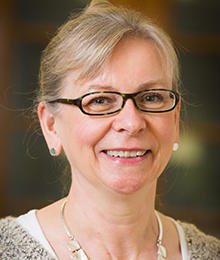
Unilever Colworth Prize
The 2018 Unilever Colworth Prize will be awarded to Professor Sharon Peacock CBE from the London School of Hygiene & Tropical Medicine. Sharon uses whole genome sequencing technology in public health, helping to increase the speed of outbreak analysis. In 2010, Sharon was clinical lead on the first study to use next generation sequencing approaches to analyse the local and global transmission patterns of Staphylococcus aureus.
Professor Peacock has been working with local hospitals and regional microbiology services to implement sequence-based approaches to clinical microbiology. Her work has demonstrated that microbial genomics can be used in this context, demonstrating that genetic sequence data can be used to direct interventions during ongoing outbreaks. In 2015, Sharon was awarded a CBE for her service to medical microbiology.
She said of her award: “I am delighted to have been awarded the 2018 Unilever Colworth Prize by the Microbiology Society. I am indebted to my research group, whose talent and hard work is the basis for our collective success. Capitalising on the potential of new technologies and innovations that promise major benefits to patients and public health is a key objective for clinical and public health microbiology.”
The Unilever Colworth Prize is sponsored by Unilever Research’s Colworth Laboratory. The recipient is awarded £1,000.
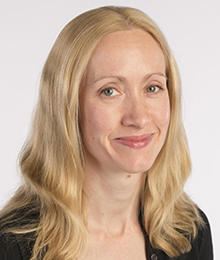
Fleming Prize
The 2018 Fleming Prize will be awarded to Dr Sarah Coulthurst from the University of Dundee. Sarah’s work focuses on protein secretion, working to understand how bacteria interact with their environment, each other, and their hosts. In particular, Sarah looks at gram-negative type VI protein secretion systems, which are involved in killing competitor bacteria and host toxicity.
She said of her award: “I was delighted to hear that I have been awarded the Fleming Prize. I have been a member of the Microbiology Society since the beginning of my PhD and have been inspired and supported by the community it represents ever since. Therefore receiving this award is a great honour.”
The Fleming Prize is named after Sir Alexander Fleming, founder and first President of the Microbiology Society, then named the Society for General Microbiology (1945–1947), and is awarded to an early career researcher who has achieved an outstanding research record. The recipient is awarded £1,000.
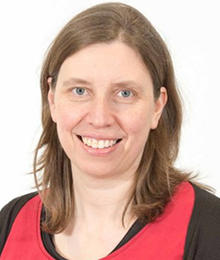
Peter Wildy Prize
The 2018 Peter Wildy Prize will be awarded to Dr Tansy Hammarton from the University of Glasgow. Dr Hammarton has a long career in scientific outreach activities, working for over a decade to develop material that engages with a wide variety of audiences, ranging from teaching nursery school children about handwashing through to teaching educators about public engagement activities.
Tansy has been recognised for her effort, energy and enthusiasm in public engagement, championing her research in parasitology. She is acknowledged both in her own right as a communicator who can encourage the curiosity of anyone she interacts with, and also as a enabler for others to learn how to engage the public effectively.
She said of her award: “I am delighted to have been awarded the 2018 Peter Wildy Prize and feel very honoured that my public engagement work has been recognised in this way. I have been very fortunate to have received a lot of support over the years from many University of Glasgow staff and students, and would like to pay tribute to all who have helped me organise and deliver public engagement activities.”
The Peter Wildy Prize is named after distinguished virologist and much-loved teacher Peter Wildy, who was president of the Society from 1978 to 1981, and is awarded for outstanding contributions to microbiology education or the communication of microbiology to the public. The recipient is awarded £1,000.
The Microbiology Society’s Annual Conference 2018 will be held at the International Conference Centre, Birmingham, UK, from Tuesday 10 April to Friday 13 April. To view our extensive programme and register, please visit the event’s website. To find out more about our Prize Lectures, visit the Prize Lectures page.
Image: Prize Medal: Roy Kaltschmidt. Marjory Stephenson Prize: German National Academy of Sciences Leopoldina. Unilever Colworth Prize: Sharon Peacock, UCL. Fleming Prize: Sarah Coulthurst, University of Dundee. Peter Wildy Prize: Tansy Hammarton, University of Glasgow Photographic Unit.
